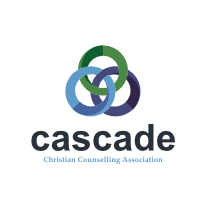You may have found yourself using the word “stressed” a lot, as you take on the role of a homeschool teacher, wait in an hour-long lineup, or consider your finances. According to the Center on the Developing Child at Harvard University, stress can be organized into three categories: positive, tolerable, and toxic (CDC, 2000). These categories are not about the stressful event itself, but rather the support that is received and the effect the stress has on our bodies. For children, support comes through positive adult relationships; for adults, support can generalize to those closest to you who are similar in age.
Positive Stress refers to brief and necessary challenges a person faces as they grow, such as learning to tie shoelaces, or giving a presentation in class. This kind of stress allows us to grow and learn new skills. We are supposed to experience positive stress for healthy development.
Tolerable Stress refers to unavoidable tragedies that are a part of life, such as a loved one dying or a natural disaster. In these cases, if the experience is time-limited and the person has supportive, caring relationships to help navigate the stress, the brain and body recover and continue to function well.
Toxic Stress refers to severe and prolonged exposure to abuse or neglect, often in the case of a caregiver to a child. These situations can lead to long-lasting effects in all areas of wellness. (Toxic Stress retrieved from Center on the Developing Child 2000)
The effects of COVID-19 fall within the category of Tolerable Stress. We can recover well from this stress with adequate time and support. Since the pandemic is a worldwide experience, we also have a unique opportunity to connect with our community. When we feel that our experiences are shared, our stress is lowered and our anxiety decreases. While we can be hopeful that we will recover from this tolerable stress, we must still recognize it for what it is: stress. The change we have experienced brings with it a significant amount of grief and loss. Remember to be kind to yourself and others. At regular points in the day, take a deep breath in and a long breath out. Continue doing this, bringing to mind others who are going through a similar situation. Focus on those individuals that you have, or could have, contact with. Set yourself small goals of connection, and be patient as you go throughout your day.
Leanne VanderMeer CCC
Contract Counsellor, CCCA

